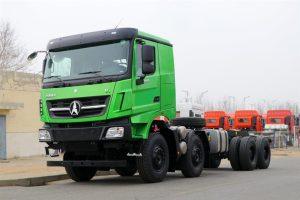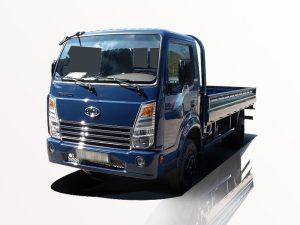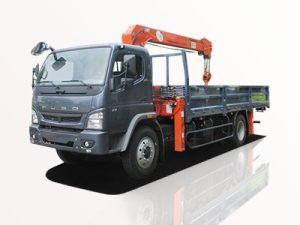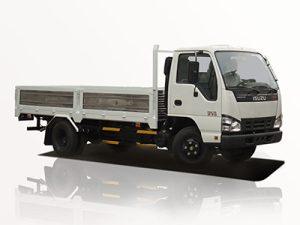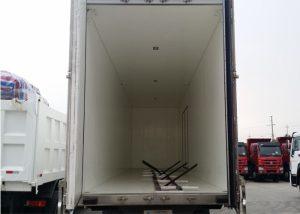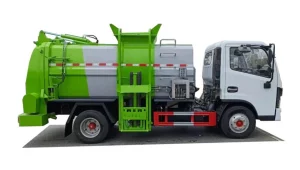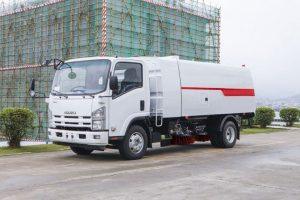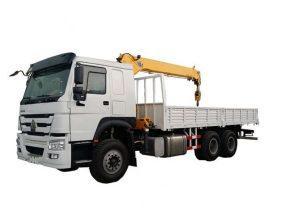Monday to Saturday - 8:00 -17:30
Isuzu Refuse Truck: The Ultimate Guide to Waste Management Efficiency
In today’s world, effective waste management is crucial for both public health and environmental sustainability. Among the various vehicles used for this purpose, the Isuzu refuse truck stands out as a reliable, efficient, and versatile option. In this comprehensive article, we will explore everything you need to know about Isuzu refuse trucks, including their features, benefits, types, and tips for selecting the right model for your needs.
Understanding the Isuzu Refuse Truck
What is a Refuse Truck?
A refuse truck is a specialized vehicle designed to collect and transport waste. Built to handle heavy loads and equipped with features such as hydraulic lifts, refuse trucks play a critical role in municipal services, helping keep cities clean and healthy.
Overview of Isuzu Trucks
Isuzu Motors is a well-regarded manufacturer known for producing durable and reliable trucks. Their refuse trucks are no exception, featuring robust engineering and advanced technology suited for the demands of waste collection.
Key Features of Isuzu Refuse Trucks
1. Durability and Reliability
Isuzu refuse trucks are built to last. They undergo rigorous testing and are designed to handle the challenges of refuse collection. Features like reinforced frames and high-quality materials ensure long-term performance, reducing downtime and maintenance costs.
2. Advanced Engine Options
Isuzu offers a range of fuel-efficient engines in their refuse trucks. These engines are compliant with emission regulations, providing both power and lower environmental impact. For example, the Isuzu NPR HD model features a 5.2L turbocharged engine that balances performance with fuel efficiency.
3. Ergonomic Design
The design of Isuzu refuse trucks prioritizes operator comfort. The spacious cab, adjustable seats, and user-friendly controls make long hours on the road less taxing for drivers. This ergonomic design contributes to higher job satisfaction and improved safety.
4. Customizable Options
One of the notable attributes of Isuzu refuse trucks is their customization potential. Operators can choose from various configurations, including compaction systems, body types, and lift systems tailored to their specific waste collection needs.
5. Safety Features
Safety is a top priority in Isuzu refuse trucks. They come equipped with advanced safety features such as anti-lock braking systems (ABS), stability control, and rearview cameras. These features assist drivers in navigating urban environments, enhancing both safety and efficiency.
Types of Isuzu Refuse Trucks
1. Rear Loader Trucks
Rear loader trucks are designed for compacting waste collected from residential areas. They offer efficient waste collection and are fitted with hydraulic arms for easy dumping. The Isuzu N-Series is a popular choice for municipalities looking for rear loaders.
2. Front Loader Trucks
Front loader trucks are used primarily in commercial and industrial environments. They have large containers that can lift and dump heavy loads directly into the truck’s body. The Isuzu F-Series offers front loader configurations suitable for demanding applications.
3. Side Loader Trucks
Side loader trucks provide a unique advantage by allowing operators to collect waste with minimal effort. With modern side-loading technology, drivers can operate the truck without leaving the cab. This model is particularly effective for urban areas with tight spaces.
4. Compaction Trucks
Compaction trucks are equipped with a mechanism that compresses waste, allowing for greater storage capacity. The Isuzu refuse trucks with advanced compaction systems help reduce the number of trips needed for waste disposal, saving time and fuel.
Selecting the Right Isuzu Refuse Truck
Assess Your Needs
Before purchasing an Isuzu refuse truck, assess your waste management needs. Consider the types of waste you will be collecting, the volume, and the operating environment. This understanding will guide you in choosing the right model and configuration.
Evaluate Engine Options
Different Isuzu refuse truck models come with various engine options. Consider factors such as horsepower, fuel efficiency, and emissions standards when selecting an engine to ensure compliance with local regulations and operational efficiency.
Understand the Cost
Isuzu refuse trucks come at various price points based on features and configurations. It’s essential to budget for the initial purchase and ongoing maintenance costs. Always compare prices and include additional expenses such as insurance and operation costs in your calculations.
Consider Manufacturer Support
When choosing an Isuzu refuse truck, verify the manufacturer’s support services. Isuzu is known for offering reliable customer service, warranties, and service packages. Ensure that you have access to parts and support to keep your vehicle running smoothly.
Maintenance Tips for Isuzu Refuse Trucks
Regular Inspections
Conducting regular inspections of the truck is vital for preventive maintenance. Check tire pressure, fluid levels, and brake functionality. Scheduled inspections will help identify issues before they become serious problems.
Clean the Vehicle
Waste trucks can accumulate dirt and debris, affecting performance and appearance. Regularly washing and cleaning your Isuzu refuse truck will not only enhance its lifespan but also ensure it operates efficiently.
Follow a Maintenance Schedule
Adhering to a strict maintenance schedule will keep your truck in optimal condition. This should include oil changes, filter replacements, and checks for wear and tear on moving parts. Always refer to the manufacturer’s guidelines for specific maintenance requirements.
Train Operators
Ensuring that operators are well-trained in the use and maintenance of Isuzu refuse trucks is crucial. Provide training on safety features, proper driving techniques, and routine checks. Knowledgeable operators contribute to safer operations and reduced wear on the vehicle.
Practical Examples of Isuzu Refuse Trucks in Use
Municipal Waste Collection
Many cities across the globe utilize Isuzu refuse trucks for municipal waste collection. For instance, the city of Seattle employs Isuzu NPR models fitted with packers for efficient curbside collection, ensuring timely waste management services.
Commercial Applications
In the commercial sector, businesses such as supermarkets and large retail chains utilize Isuzu front loader trucks for their waste disposal needs. The multimedia case study from Walmart highlights how their operational efficiency improved with the adoption of Isuzu trucks.
Recycling Operations
Isuzu refuse trucks play a pivotal role in recycling efforts. For example, numerous recycling companies in Los Angeles utilize Isuzu side loaders to collect sorted recyclables, showcasing the versatility of these trucks in various waste management applications.
FAQ Section
1. What is the average lifespan of an Isuzu refuse truck?
The average lifespan of an Isuzu refuse truck can range from 10 to 15 years, depending on factors such as maintenance, usage patterns, and operational conditions.
2. Are Isuzu refuse trucks environmentally friendly?
Yes, Isuzu refuse trucks are designed with fuel-efficient engines that comply with emission standards, making them a more environmentally friendly option compared to older models.
3. How often should I perform maintenance on my Isuzu refuse truck?
Routine maintenance should be performed according to the manufacturer’s guidelines, typically every 5,000 to 10,000 miles or annually, whichever comes first.
4. Can I customize my Isuzu refuse truck?
Yes, Isuzu offers various customization options for their refuse trucks, allowing you to tailor the vehicle to your specific waste collection needs.
5. What types of waste can Isuzu refuse trucks collect?
Isuzu refuse trucks are designed to collect a wide range of waste, including household garbage, commercial refuse, recyclables, and construction debris.
6. How do I ensure operator safety when using refuse trucks?
To ensure operator safety, provide thorough training, conduct regular safety inspections, and equip the truck with safety features such as cameras and stability controls.


